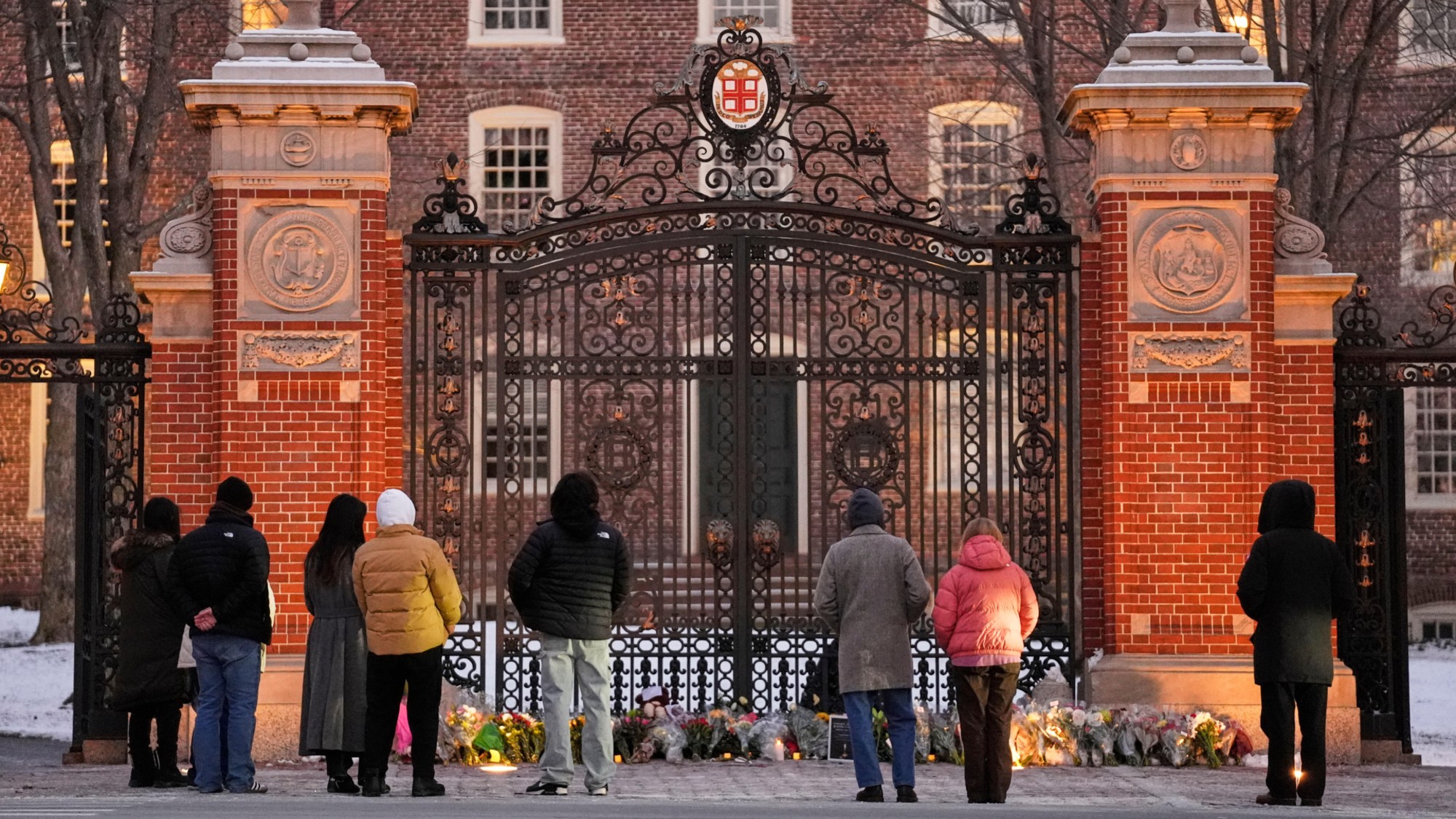How young men are radicalized online against modernity
On the dangers of the postmodern backlash


Toronto is still reeling from Monday's shocking attack. Alek Minassian, 25, allegedly drove a rented van onto the sidewalk in one of the city's most diverse neighborhoods, killing 10 and injuring 15. Police have suggested that most of the victims were women, and Minassian has been reportedly connected to a deeply misogynistic online community.
There are still many questions about the attack. But the trend of angry young men committing acts of violence after being radicalized online is hard to ignore, and is part of a growing, broader phenomenon that has seen them push back against feminism, racial and sexual diversity, and postmodern society in general. Making matters worse is that while some of the communities driving this reactionary movement are niche, it's increasingly finding a home in mainstream spaces too.
The hunt for Minassian's alleged motive starts with an image of a Facebook post purported to be written by him that circulated shortly after the attack. It referenced the language of notorious message board 4chan, and in particular the idea of the "incel" — short for involuntary celibates, a community of mostly young men online deeply angry at women and the world for their lack of romance. Minassian even allegedly paid homage to Eliot Rodger, a 22-year-old misogynist who killed six people before turning the gun on himself in 2014.
The Week
Escape your echo chamber. Get the facts behind the news, plus analysis from multiple perspectives.

Sign up for The Week's Free Newsletters
From our morning news briefing to a weekly Good News Newsletter, get the best of The Week delivered directly to your inbox.
From our morning news briefing to a weekly Good News Newsletter, get the best of The Week delivered directly to your inbox.
The incel community can appear baffling to outsiders, in no small part because it functions on a circular kind of logic. Incels are those who, by their own definitions, are so unattractive or awkward that they cannot find any romantic attachment. Anyone who escapes this self-imposed definition is said to have never been a "truecel," and instead joins the ranks of normies (normal people) and Chads and Stacys (conventionally attractive people who have sex). It's no true Scotsman, but applied to sex and taken to an oddly purist, self-loathing, misogynistic extreme.
Minassian has been described as awkward and shy, and perhaps having some sort of social disability. It at least thus makes some logical sense that the alleged killer would be drawn to incels and their strong self-identification that finds community in resisting something like normalcy.
It is tragic but almost unsurprising that such awful violence can arise from what borders on the nonsensical — a group of mistaken, disaffected young men who view romance as transactional, and women as objects. Such patterns are all too common in our world. But incels are unfortunately also part of a broader "manosphere," a set of online subcultures that cater primarily to young men and traffic in misogyny, racism, and a general antipathy to a perceived mainstream, whether that's liberals, a demasculinized culture, or postmodernity in general. Some of these include MGTOWs (Men Going Their Own Way) who resist relationships with women, men's rights activists, pick-up artists, and more.
If there's a common thread that unites these factions it's a feeling that masculinity needs to be reclaimed and reasserted, a sentiment that is almost always accompanied by a deep-seated misogyny. Importantly, the incel forum groups that were overjoyed at the carnage — at least behind the ironic distance of their online usernames — seemed most happy about being thrust into the limelight. The helpful explainers that have emerged this week are thus a victory of sorts for incels; finally, they say, their unappreciated suffering is being brought to light, and in the most extreme way. It is, at least in its shape, analogous to other movements, most obviously Islamist or white supremacist terror: Recognize us and our legitimacy, or face our violent wrath.
A free daily email with the biggest news stories of the day – and the best features from TheWeek.com
Yet if these movements are still fringe for the time being, they are nonetheless reflected in their own way in the broader culture.
Take Jordan Peterson, the Canadian professor who has rocketed to fame largely on the back of a reactionary sentiment that something is deeply wrong with modern progressivism. It is not that Peterson blithely repeats the talking points of groups like incels. Instead, Peterson represents the most popular pushback to the tenor and nature of postmodern society, suggesting that fundamental truths have been lost and must be aggressively defended and reinstituted.
Though he has been roundly critiqued for misunderstanding what postmodernism actually is, Peterson inadvertently has latched onto something accurate. He is in loose terms a "structuralist," someone who believes that there are underlying deep structures that express some fundamental truths about humanity, whether fixed ideals of gender, the neutral objectivity of truth, the inherent superiority of Western thought, or more generally, the legacy of the Enlightenment. Peterson opposes what he calls postmodernism, but might better be termed poststructuralism, because that latter school of thought suggests that those deep truths are neither so deep nor so true. For example, instead of believing that gender norms are expressions of a natural order, poststructuralist feminism thinks of gender as a complex interplay between physiology, neurobiology, sociology, and history. It is ultimately a more difficult, hard-to-pin down version of reality — and now those whose status feels threatened by the promise of something of new are pushing back. Taken as a whole, everything from incel culture to Peterson's many fans all represent a reactionary movement, a kind of pendulum swing away from late 20th century thought.
It is often a mistake to draw neat, causal lines between broader ideologies and the acts of an individual. Human behavior isn't quite so reductive, and it's likely that there was a toxic stew of factors that reportedly led Minassian to his heinous alleged crime. But this horrific attack may well be part of a broader, emergent trend that rejects modernity in favor of the past, a deeply conservative streak that wishes to turn back time to an era in which white men were still dominant. If that weren't disturbing enough, however, we have now again seen how violent this turn can become.
The intersection at which Minassian allegedly committed such a heinous act was also one that I used to work at many years ago. It was at an electronics store, in a dark basement. It was in many ways the best of Toronto: people from all around the world, working in harmony. But in that basement were the seeds of angry, threatening resentment, too: Many of my coworkers were also awkward young men, baffled by social interaction and sexuality, finding solace in each other and the glow of colorful screens.
But this was also before the mainstreaming of the internet — before they could find community with thousands of others, and the mere fact of that community could amplify their feeling of legitimacy. As we now grieve the loss of innocent life, it is impossible not to further worry about the bubbling cauldrons of resentment and fear that litter the internet, full of angry young men that feel threatened and thus become a threat in turn. It is a profound risk that feminist activists have been warning the world about for some time.
And as they find an echo of their thoughts in mainstream figures gathering audiences around their pernicious ideas, perhaps it is time we listen — not to the angry men who have already been radicalized, but to those who have been alerting us to the risks all along.
Navneet Alang is a technology and culture writer based out of Toronto. His work has appeared in The Atlantic, New Republic, Globe and Mail, and Hazlitt.
-
 Which side is JD Vance taking in MAGA’s infighting?
Which side is JD Vance taking in MAGA’s infighting?Today’s Big Question GOP insiders are battling over antisemitism with an eye on 2028
-
 Campus security is in the public eye again after the Brown shooting
Campus security is in the public eye again after the Brown shootingTalking Points Questions surround a federal law called the Clery Act
-
 9 new cookbooks begging to be put to good winter use
9 new cookbooks begging to be put to good winter usethe week recommends Booze-free drinks, the magic versatility of breadcrumbs and Japanese one-pot cooking
-
 How Bulgaria’s government fell amid mass protests
How Bulgaria’s government fell amid mass protestsThe Explainer The country’s prime minister resigned as part of the fallout
-
 Femicide: Italy’s newest crime
Femicide: Italy’s newest crimeThe Explainer Landmark law to criminalise murder of a woman as an ‘act of hatred’ or ‘subjugation’ but critics say Italy is still deeply patriarchal
-
 Brazil’s Bolsonaro behind bars after appeals run out
Brazil’s Bolsonaro behind bars after appeals run outSpeed Read He will serve 27 years in prison
-
 Americans traveling abroad face renewed criticism in the Trump era
Americans traveling abroad face renewed criticism in the Trump eraThe Explainer Some of Trump’s behavior has Americans being questioned
-
 Nigeria confused by Trump invasion threat
Nigeria confused by Trump invasion threatSpeed Read Trump has claimed the country is persecuting Christians
-
 Sanae Takaichi: Japan’s Iron Lady set to be the country’s first woman prime minister
Sanae Takaichi: Japan’s Iron Lady set to be the country’s first woman prime ministerIn the Spotlight Takaichi is a member of Japan’s conservative, nationalist Liberal Democratic Party
-
 Russia is ‘helping China’ prepare for an invasion of Taiwan
Russia is ‘helping China’ prepare for an invasion of TaiwanIn the Spotlight Russia is reportedly allowing China access to military training
-
 Interpol arrests hundreds in Africa-wide sextortion crackdown
Interpol arrests hundreds in Africa-wide sextortion crackdownIN THE SPOTLIGHT A series of stings disrupts major cybercrime operations as law enforcement estimates millions in losses from schemes designed to prey on lonely users
